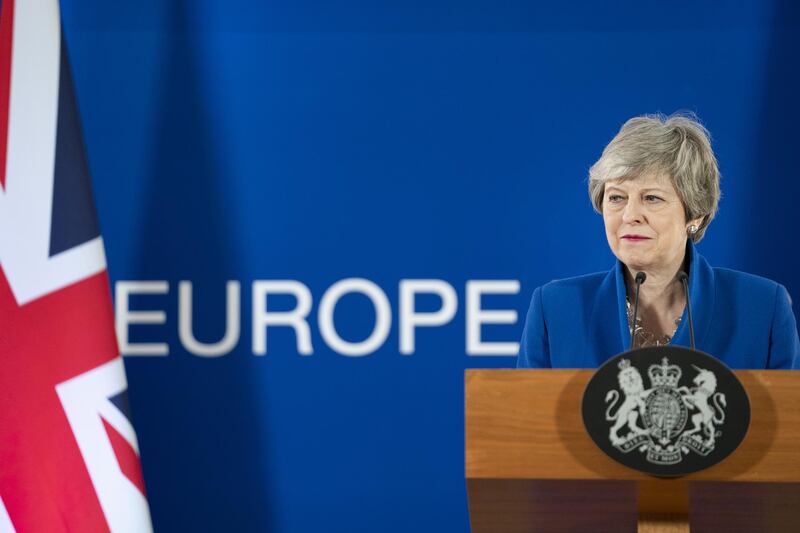If there is one lesson to draw from the ongoing saga of Brexit, it is that there is no feasible compromise that will placate both sides.
A full-scale political crisis has escalated as a result of the all-or-nothing atmosphere surrounding the British exit from the EU.
It is futile to believe any longer that there is a middle way. Leave campaigners frustrated all efforts to adopt the quite advantageous deal that the British and Europeans struck late last year. The Remain camp have, in retaliation, stopped the pull-out in its tracks.
Until the events of the last few days, I despaired of the idea of a second referendum but I now think it is the best way out of the crisis. The extension of the timetable to October 31 means it is only logical to offer a choice between leaving on the new terms or staying in.
All parties to the process have lost control: the government, which had promised to deliver a managed exit but tanked; and parliament, which put its foot down to stop a hard exit but failed to come up with an agreed alternative. Now Europe has released its previously sure grip as well.
Last week the French president led a drive to set a deadline for the brinkmanship to come to an end, one way or another.
The build-up to the summit saw Emmanuel Macron portrayed as a modern-day equivalent of General Charles de Gaulle, the post-war French president, who in the 1960s said “non” to British efforts to join the Common Market.
The De Gaulle reasoning was that Britain was economically incompatible with existing members because of its post-empire international interests and was too close to the US. He warned that Britain would have to undergo a profound transformation to synchronise with its neighbours.
It would be easy to interpret De Gaulle’s words as the correct analysis in light of the Brexit referendum of 2016.
The problem is that economically – not politically – Britain was profoundly transformed as it aligned its best interests with Europe. It is also clear London’s security interests are equally bound by geography to its near neighbour.
For both these reasons, Theresa May, the British prime minister, made the fateful choice earlier this month not to take Britain over a cliff edge.
Mr Macron saw an opening for De Gaulle’s badge of European integration to push back against the subsequent British application for an extension. The showdown demonstrated his Gaullist instincts are his strongest political calling card. Fearful of the rise of rightists and nationalists, Mr Macron sees Brexit as a sideshow from the real battles ahead.
The longer it goes on, he seems to think, the more anti-European politics will thrive and disrupt. Far better to focus on deepening the union between core European states, which means pushing out Westminster and sidelining doubters like Poland and Hungary.
As he fought his corner, Mr Macron betrayed the common purpose the 27 EU states had found in Brexit. In the end, his argument for an abrupt Brexit, as opposed to a managed process, was a step too far for most leaders, who argued into the small hours of the night.
Just as Britain was too deeply tied to Europe for a clean break, there was a parallel constraint on the political side. The Europeans could not accept a De Gaulle-style clean break.
The next few weeks represent a Brexit no man’s land. When battle recommences, it is possible that either the government, parliament or Europe will regain a grip. A new government after the benighted Mrs May vacates Downing St faces the same immediate challenge. However any new prime minister would still lack a majority in parliament and face EU demands to withdraw under the terms agreed by Mrs May.
Parliament could decide to set down terms, either through negotiations between the government and Labour, or by pushing through a no-confidence vote and forcing an election. The most likely outcome would be a Labour government and a quick, May-style deal.
European-wide elections are due in late May and June. The results could be so game-changing that Mr Macron’s brutalist mood spreads to the rest of the leadership and Britain is knocked off its perch.
With a Halloween Brexit now looming, headline writers have a ghoulish gift to play with for weeks to come.
But the schedule has a great advantage. It gives just enough time to figure out the form of Brexit in a referendum. If the people reject it, then Britain can disprove De Gaulle once and for all.





